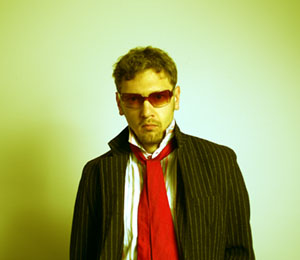I learned about a new profession about half a year ago, Professional Blogger. The tie-in to professional photographer is amazingly similar and the concept is simple: You write about stuff that people on the internet want to read about in such a way that they continually check-back to your site, you sell advertising space and make money, enough to quit your day job.
I find pro blogging interesting because it’s a prominent example of how the internet has changed the way advertisers and the modern economy enable individuals to form economically feasible escapes from the traditional workforce.
Much like with professional photography, there appears to be a tendency for people to quit their jobs and put their energies into their blogs with the hope of pulling in six-figure incomes from writing stuff on the internet. With blogging, as with any easy-entry market like photography: some might succeed, but many will be barely sustainable or just flat-out flop without a clear understanding of the market and a sound business plan.
Blogging is an even riskier industry to enter than photography since the number of possible imitators increases dramatically. Now it’s not just every person who picks up a DSLR and puts in the time to learn, it’s also anyone with an internet connection. The start-up investment is essentially just time, you can get a free blog from a number of sources and start publishing immediately.
ProBlogger.net is one of the most popular and no-doubt economically successful blogs on the internet today. Problogger is successful because it publishes information about the niche that so many bloggers on the internet want to read about: Making Money from Blogging. Everyone goes there to learn how to make a 6-figure income from typing on cyberspace. In my view, it’s similar to photography, in that the best way to make money in a creative industry such as photography or blogging is to show other people how to take photos or blog.
Consider Luminous-Landscape.com, it probably has the largest wealth of quality information related to photography on the internet. I started out my technical photo education there. The primary author, Michael Reichmann is a successful professional photographer based in Canada. However, a great deal of his success seems to be tied to producing video tutorials on photography and organizing photo workshop tours around the world, which is all promoted on his website. The power of his words when it comes to cameras and photo equipment is impressive, but I don’t think he would be the icon that he is if it were not for the position he has very smartly put himself in – A Photo Guru of the Internet Age.
Another rising Internet Guru Star in this regard is David Hobby from Strobist. As a photographer for the Baltimore Sun, he obviously knows his craft, but it’s the position he’s put himself in as the Off-Camera Flash Guru which will for sure provide an excellent platform for his future success. Plus, he can create waves. If he mentions a new flash, like the Vivtar 285HV, or the Westcott double fold umbrella reflector, there’s a good possibility that Midwest Photo Exchange will get a large number of orders almost overnight.
What about those that just blog, without it would seem, any specific niche? The thing I like about RT Cunningham is that he doesn’t really have a niche, he just writes and people read it. The interesting thing about www.untwistedvortex.com is that in general, it doesn’t tell you how to make money or fulfill any creative ambitions, but it’s ranked high and I can’t stop reading it.
In the past year that I’ve started doing the American Peyote blog on a normal basis I’ve learned many things, which aside from making money on the internet, I find very applicable to many facets of my life. Producing blog entries keeps my mind moving and my writing skills primed. Exploring money making opportunities from photography or blogging is exposing me to the marketing and economic realities you don’t learn about in engineering classes.
I gotten a better feeling for how information is digested in the internet world. As a consequence, I started Klugmat.org to more effectively disseminate the knowledge gained from my PhD work. Turning my PhD into a website means more exposure to more people for my work, since normally the number of folks who read your dissertation is extremely small. There’s no money to be made, but I have faith in smart materials, and the prospect of exposing more people to this technology just seems like a cool thing to do.
I also discovered something else, one of my biggest visitor days was March 24th 2007, the day that I gave a presentation on Photography and Writing for Blogs at BlogCamp Zurich. Despite the power of internet communication and high-speed connections, Technorati and BlogJuice, it was the act of physically giving a presentation to a group of real-live people which increased my blog exposure in Switzerland.
I don’t know if I’ll ever make a real go at monitizing the American Peyote blog or entering the stock photography game, but the things I’ve learned from studying these possibilities has greatly contributed to my success as a smart materials researcher and will no-doubt play a roll in my future adventures in life.
 Spend five seconds on any photography forum and the topic of Going Pro eventually comes up. The premise is rather simple: someone takes up photography as a hobby, decides they like taking photos, realize that they can produce images similar to those of professional photographers, and want to become a professional themselves.
Spend five seconds on any photography forum and the topic of Going Pro eventually comes up. The premise is rather simple: someone takes up photography as a hobby, decides they like taking photos, realize that they can produce images similar to those of professional photographers, and want to become a professional themselves. However, without his client list, reputation, and inter-personal skills, my ability to do his job is severely reduced. As a photographer, this doesn’t really mean much to me, as I’m more interested in developing my own look, just like I developed my own writing voice and interpretation on project management techniques and problem solving. This is not to say that amateurs shouldn’t be making money off of photography, but start small – and begin with a plan for profits. Figure out what you want to do and form an economically feasible strategy around it. If you have a thousand images, don’t just blindly sent them off to istock.com, figure out a stock photo niche and build around it. I think that integrating economic principles into creative fields and a hobby like photography is overall a good thing. The world runs on economic systems, and trying to imply that they don’t exist and that creativity and art and photography are pure forms of expression untainted by the complications of money is in some ways a tad short-sighted. Life is a crazy adventure, be fresh, explore new ideas and possibilities, but if you’re primarily interested in fulfilling your life via the integration of creativity, don’t blindly buy into the rumor that becoming a professional in the field of photography will solve anything or actually be a good idea.
However, without his client list, reputation, and inter-personal skills, my ability to do his job is severely reduced. As a photographer, this doesn’t really mean much to me, as I’m more interested in developing my own look, just like I developed my own writing voice and interpretation on project management techniques and problem solving. This is not to say that amateurs shouldn’t be making money off of photography, but start small – and begin with a plan for profits. Figure out what you want to do and form an economically feasible strategy around it. If you have a thousand images, don’t just blindly sent them off to istock.com, figure out a stock photo niche and build around it. I think that integrating economic principles into creative fields and a hobby like photography is overall a good thing. The world runs on economic systems, and trying to imply that they don’t exist and that creativity and art and photography are pure forms of expression untainted by the complications of money is in some ways a tad short-sighted. Life is a crazy adventure, be fresh, explore new ideas and possibilities, but if you’re primarily interested in fulfilling your life via the integration of creativity, don’t blindly buy into the rumor that becoming a professional in the field of photography will solve anything or actually be a good idea.